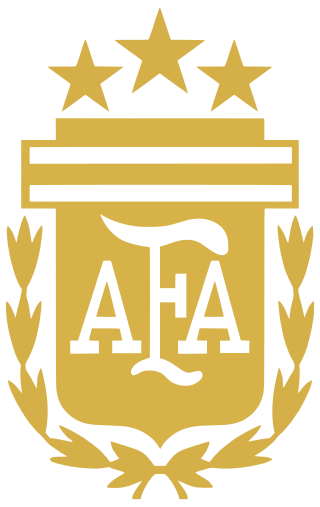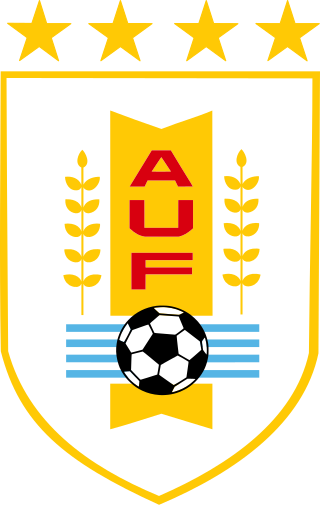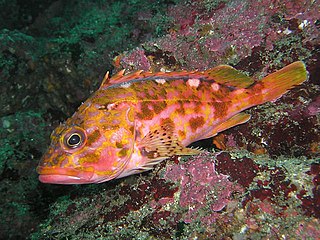
The Río de la Plata, also called the River Plate or La Plata River in English, is the estuary formed by the confluence of the Uruguay River and the Paraná River at Punta Gorda. It empties into the Atlantic Ocean and forms a funnel-shaped indentation on the southeastern coastline of South America. Depending on the geographer, the Río de la Plata may be considered a river, an estuary, a gulf, or a marginal sea. If considered a river, it is the widest in the world, with a maximum width of 220 kilometres (140 mi).

Argentina is divided into twenty-three federated states called provinces and one called the autonomous city of Buenos Aires, which is the federal capital of the republic as decided by the Argentine Congress. The provinces and the capital have their own constitutions and exist under a federal system.

Buenos Aires is the capital city of Argentina, on the western shore of the Río de la Plata on South America's southeastern coast. "Buenos aires" is Spanish for "fair winds" or "good airs". Buenos Aires is classified as an Alpha global city, according to the Globalization and World Cities Research Network (GaWC) 2020 ranking.

The Argentina national football team, nicknamed La Albiceleste, represents Argentina in men's international football and is administered by the Argentine Football Association, the governing body for football in Argentina.

The Uruguay national football team, nicknamed La Celeste, represents Uruguay in international men's football, and is administered by the Uruguayan Football Association, the governing body for football in Uruguay.

The Argentine Football Association is the governing body of football in Argentina based in Buenos Aires. It organises the main divisions of Argentine league system, including domestic cups: Copa Argentina, Supercopa Argentina, Copa de la Liga Profesional, Trofeo de Campeones de la Liga Profesional and the Supercopa Internacional. The body also manages all the Argentina national teams, including the Senior, U-20, U-17, U-15, Olympic and women's squads. Secondly, it also organizes the women's, children, youth, futsal, and other local leagues.

Club Atlético River Plate, commonly known as River Plate, is an Argentine professional sports club based in the Belgrano neighborhood of Buenos Aires. Founded in 1901, the club is named after the English name for the city's estuary, Río de la Plata. River's home stadium, Estadio Monumental, is the largest in South America. River had the highest average home attendance of any association football club in the world in 2023 with 84,567. With more than 350,000 members at the end of 2023, River is one of the largest sports clubs by membership.

The Primera División, known officially as Liga Profesional de Fútbol, or Torneo Sur Finanzas for sponsorship reasons, is a professional football league in Argentina, organised by the Argentine Football Association (AFA).

Pyrrhocoridae is a family of insects with more than 300 species world-wide. Many are red coloured and are known as red bugs and some species are called cotton stainers because their feeding activities leave an indelible yellow-brownish stain on cotton crops. A common species in parts of Europe is the firebug, and its genus name Pyrrhocoris and the family name are derived from the Greek roots for fire "pyrrho-" and bug "coris". Members of this family are often confused with, but can be quickly separated from, Lygaeidae by the lack of ocelli on the top of the head.
The Argentina men's national basketball team represents Argentina in men's international basketball officially nicknamed The Argentine Soul, and it is controlled by the Argentine Basketball Federation.
Semnolius is a genus of South American jumping spiders that was first described by Eugène Louis Simon in 1902.

Argentina, officially the Argentine Republic, is a country in the southern half of South America. Argentina covers an area of 2,780,400 km2 (1,073,500 sq mi), making it the second-largest country in South America after Brazil, the fourth-largest country in the Americas, and the eighth-largest country in the world. It shares the bulk of the Southern Cone with Chile to the west, and is also bordered by Bolivia and Paraguay to the north, Brazil to the northeast, Uruguay and the South Atlantic Ocean to the east, and the Drake Passage to the south. Argentina is a federal state subdivided into twenty-three provinces, and one autonomous city, which is the federal capital and largest city of the nation, Buenos Aires. The provinces and the capital have their own constitutions, but exist under a federal system. Argentina claims sovereignty over the Falkland Islands, South Georgia and the South Sandwich Islands, the Southern Patagonian Ice Field, and a part of Antarctica.

Dysdercus is a widespread genus of true bugs in the family Pyrrhocoridae; a number of species attacking cotton bolls may be called "cotton stainers".

Sebastiscus albofasciatus, the yellowbarred red rockfish or yellowbarred stingfish, is a species of marine ray-finned fish belonging to the subfamily Sebastinae, the rockfishes, part of the family Scorpaenidae. It is found in the northwestern Pacific Ocean.

Dysdercus cingulatus is a species of true bug in the family Pyrrhocoridae, commonly known as the red cotton stainer. It is a serious pest of cotton crops, the adults and older nymphs feeding on the emerging bolls and the cotton seeds as they mature, transmitting cotton-staining fungi as they do so.

Dysdercus suturellus is a species of true bug in the family Pyrrhocoridae, commonly known as a cotton stainer. The adult insect is slender, about 1 to 1.5 cm long, with a red thorax and dark brown wings marked with a yellow cross. It is native to the southeast of the United States, Jamaica and Puerto Rico. It is a pest of cotton crops and other plants, the adults and older nymphs feeding on the emerging bolls and the ripening seeds.

Dysdercus koenigii is a species of true bug in the family Pyrrhocoridae, commonly known as the red cotton stainer. It is a serious pest of cotton crops, the adults and older nymphs feeding on the emerging bolls and the cotton seeds as they mature, transmitting cotton staining fungi as they do so.

Dysdercus andreae, or St. Andrew's cotton stainer, is a species of red bug in the family Pyrrhocoridae. It is found on islands in the Caribbean Sea and in North America. Its host plant is Thespesia populnea, which it feeds on the seeds and fruits of.

Dysdercus concinnus, known generally as the pale red bug or Turk's cap red bug, is a species of red bug in the family Pyrrhocoridae. It is found in Central America, North America, and South America.

Dysdercus mimulus is a species of red bug in the family Pyrrhocoridae. It is found in the Caribbean, Central America, and North America.

















